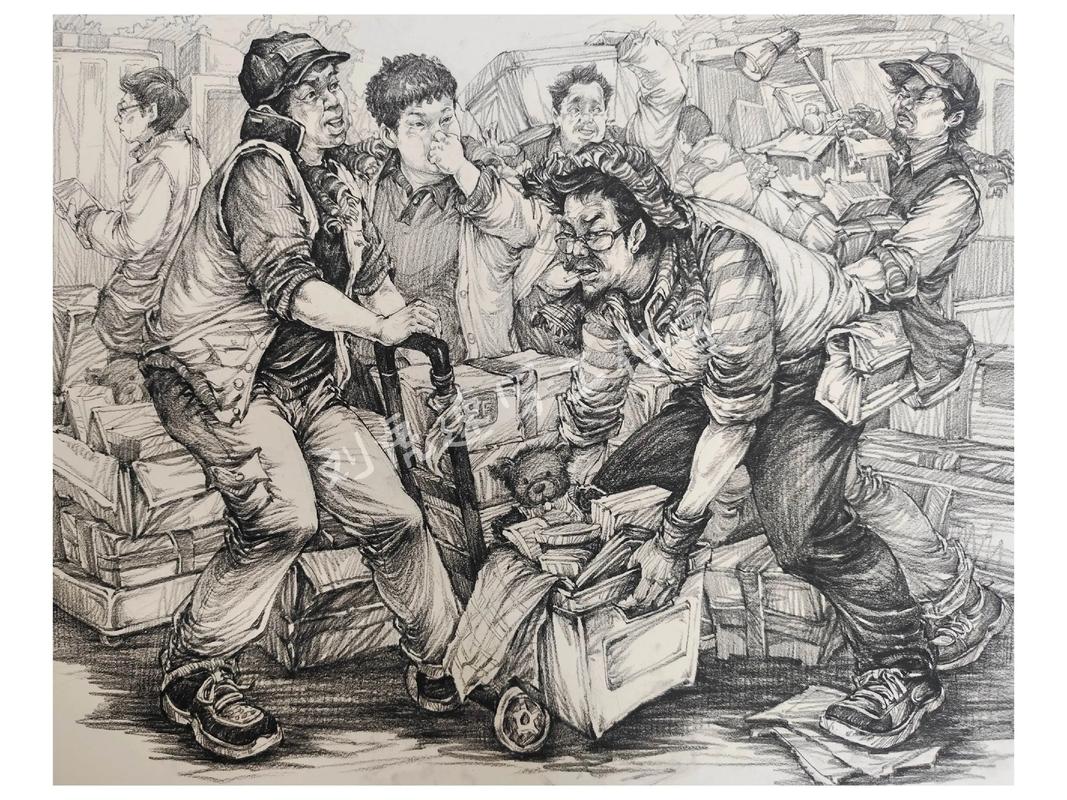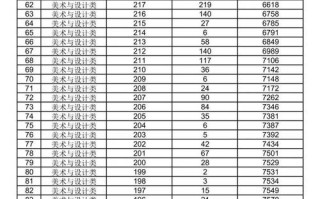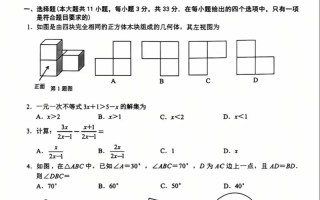2025年山东美术联考考题回顾
2025年的山东联考延续了其一贯的风格,注重基础、考察学生的造型能力、色彩表现能力和画面整体把握能力,考试科目分为造型基础(素描)、色彩基础和速写三科。

(图片来源网络,侵删)
造型基础(素描)
科目: 素描静物写生
考试时间: 180分钟
考试形式: 写生 ** 考生需要根据提供的静物组合进行写生,具体组合内容如下:
- 主体物: 一个白色陶瓷花瓶(带耳朵,有高光)。
- 水果类: 一个苹果、一个橘子、一个梨。
- 蔬菜类: 一根大葱、一个青椒。
- 其他: 一个白瓷盘(或类似器皿),用于盛放水果。
总计: 约6-7件静物。

(图片来源网络,侵删)
评分要点与备考分析:
- 构图与布局: 物体摆放是否稳定、均衡,主次关系是否明确,花瓶通常是视觉中心,需要放在构图黄金分割点附近,盘子和水果要围绕花瓶展开,形成疏密有致的关系。
- 造型与比例: 每个物体的形体是否准确,透视关系是否正确,特别是花瓶的对称性、盘子的圆形透视、水果的球形结构以及大葱的圆柱形结构,都是考察重点。
- 明暗与光影: 光影关系是否统一、自然,需要明确光源方向,画出清晰的五大调子(亮部、灰部、明暗交界线、反光、投影),白瓷瓶的高光是难点,要画出通透感,但又不能“死白”。
- 质感表现: 陶瓷的光滑、水果的果皮质感、青椒的粗糙质感、大葱的脆嫩感等,都需要通过不同的排线和处理手法来区分。
- 画面整体感: 画面的黑白灰关系是否拉开,空间感、体积感是否充分,静物之间的投影要相互联系,形成统一的整体。
色彩基础
科目: 色彩静物写生
考试时间: 180分钟
考试形式: 写生 素描考题的色彩版本**,静物组合与素描完全一致。

(图片来源网络,侵删)
- 主体物: 一个白色陶瓷花瓶。
- 水果类: 一个苹果(偏红/黄)、一个橘子(橙色)、一个梨(黄绿色)。
- 蔬菜类: 一根大葱(葱白、葱绿)、一个青椒(绿色)。
- 其他: 一个白瓷盘。
总计: 约6-7件静物。
评分要点与备考分析:
- 色调与氛围: 画面的整体色调是否和谐统一,2025年这个题目偏向于暖色调,以梨的黄绿色、橘子的橙色、苹果的暖黄/红色为主,大葱的绿色和青椒的深绿色是重要的冷暖和纯度对比。
- 色彩关系: 物体之间的色彩是相互影响的,如环境色、光源色、固有色,白盘子会受到周围物体色彩的影响,不能画成一个纯白的“纸片”,水果的亮部、灰部、暗部要有色彩倾向上的变化,而不仅仅是明度的变化。
- 塑造与笔触: 物体的体积感和质感是否通过色彩和笔触塑造出来,画苹果的笔触可以圆润一些,表现其饱满;画青椒的笔触可以肯定、有棱角一些;画葱白的笔触要柔和,表现其通透。
- 空间与层次: 通过色彩的冷暖、纯度、明度对比来拉开画面的空间感,近处的物体色彩纯度高、对比强,远处的物体色彩纯度低、偏灰。
- 画面完整度: 画面是否干净、整洁,水粉技法是否娴熟(如干湿画法的运用),整体关系是否处理到位。
速写
科目: 人物动态速写
考试时间: 30分钟
考试形式: 写生 一位站姿的男青年**。
具体要求:
- 姿势: 该男青年呈自然站立姿势,双手自然下垂,身体重心落在一条腿上,呈现出轻微的“S”形动态。
- 要求: 画出该人物的比例、动态、结构关系,并适当添加一些简单的环境或道具,如地面的线、背景等,以丰富画面。
评分要点与备考分析:
- 动态与比例: 30分钟的时间非常紧张,首要任务是抓住人物大的动态线和基本比例(“站七坐五盘三半”),站姿的重心、头、胸腔、骨盆三大块的扭转关系是核心。
- 结构与透视: 在动态准确的基础上,要表现出人物的结构,肩膀的倾斜、胯部的扭转、四肢的透视关系等。
- 细节刻画: 在整体关系准确后,可以对头部、手部、脚部以及衣领、裤线等关键部位进行适当的细节刻画,体现人物的性别和身份特征。
- 画面完整性: 画面是否完整,线条是否肯定、流畅,添加简单的环境线(如地平线)可以帮助稳定画面,增强空间感,人物不能“飘”在空中。
总结与启示
2025年的山东联考题可以说是“经典中的经典”,非常考验学生的基本功。
- 回归基础: 题目没有偏、难、怪的元素,全是美术生日常训练的核心内容,这再次印证了联考的核心是选拔造型基础扎实的学生。
- 综合能力: 不仅考察单科能力,更考察学生的综合素养,素描中的色彩意识(画黑白灰时考虑冷暖),色彩中的素描关系(造型和体积),速写中的动态与结构。
- 备考建议: 对于准备参加美术联考的学生来说,2025年的考题是最好的练习范本之一,应反复练习静物组合、不同角度和光线的人像、以及各种动态的速写,做到“以不变应万变”,将基础打牢。
希望这份详细的回顾对您有帮助!
标签: 2025山东美术联考考题预测 2025山东美术联考素描题目 2025山东美术联考色彩考题
版权声明:除非特别标注,否则均为本站原创文章,转载时请以链接形式注明文章出处。






